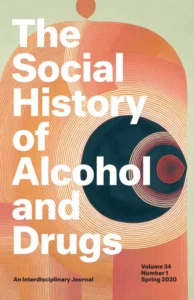Over the past two decades, Richert has attempted to address histories of substances, medicine, health, and society. As an author, editor, commentator, and critic, Richert has tackled questions about what we put in our bodies to improve our physical and mental health — and what substances we use for recreational or spiritual purposes.
His books to date have centered on the pharmaceutical industry, on regulation, and the Food and Drug Administration (A Prescription for Scandal); the boundaries that separates all manner of legitimate and illegitimate drugs (see Strange Trips), such as LSD, heroin, and amphetamines; radical mental health and social/professional movements (Break On Through) in the United States; These publications all emphasize the evolving nature of health knowledges and logics over time.
As both an editor and author, Richert has taken a wider international and global approach when focusing on cannabis as an intoxicant and therapeutic substance across the planet with (Cannabis: Global Histories). He has sought to understand the complex relationship between mental health and socioeconomics. For more, see Richert’s research page.
He has served as the co-editor in chief at both the Social History of Alcohol and Drugs as well as the History of Pharmacy and Pharmaceuticals.
Please be in touch if you have any questions.

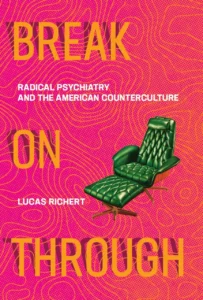
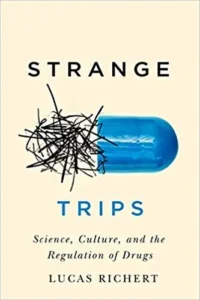
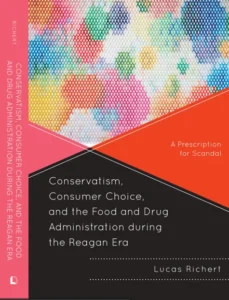
FEATURED PEER-REVIEW ARTICLE
Pharmacists and pharmacies are key drivers in the American marketplace. They serve as an endpoint of the
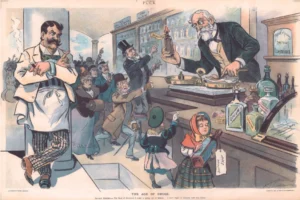
pharmaceutical supply chain and are the dispensers of a range of consumer goods, some nonthreatening and others potentially harmful to public health. In adding pharmacies to the roster of consumerist locales in the postwar period, scholars might draw even deeper connections about the transformation of health, corporate medicine, and American economic power. To understand the interface of consumerism, corporatism, and health in postwar America, this article holds the postwar pharmacy as a key site of commodity exchange and business, and positions it within the larger American firmament, paying attention to the design of pharmacies; in particular, the following article will add to the knowledge about the tangible ways that medical and health care spaces are constructed, organized, and designed to best generate profits. Besides prescription medications, alcohol, tobacco, sugar, and pharmaceuticals were also vital elements of the postwar pharmacy and will be featured in this article. Visit the article by clicking here.
FEATURED PEER-REVIEW ARTICLE
 Much discussion about mental health has revolved around treatment models. As interdisciplinary scholarship has shown, mental health knowledge, far from being a neutral product detached from the society that generated it, was shaped by politics, economics and culture.
Much discussion about mental health has revolved around treatment models. As interdisciplinary scholarship has shown, mental health knowledge, far from being a neutral product detached from the society that generated it, was shaped by politics, economics and culture.
By drawing on case studies of yoga, religion and fitness, this article will examine the ways in which mental health practices-sometimes scientific, sometimes spiritual-have been conceived, debated and applied by researchers and the public. More specifically, it will interrogate the relationship between yoga, psychedelics, South Asian and Eastern religion (as understood and practiced in the USA) and mental health.
Supple bodies, healthy minds: yoga, psychedelics and American mental health – PubMed (nih.gov)
FEATURED REVIEW ESSAYS


JOURNAL EDITORSHIPS
